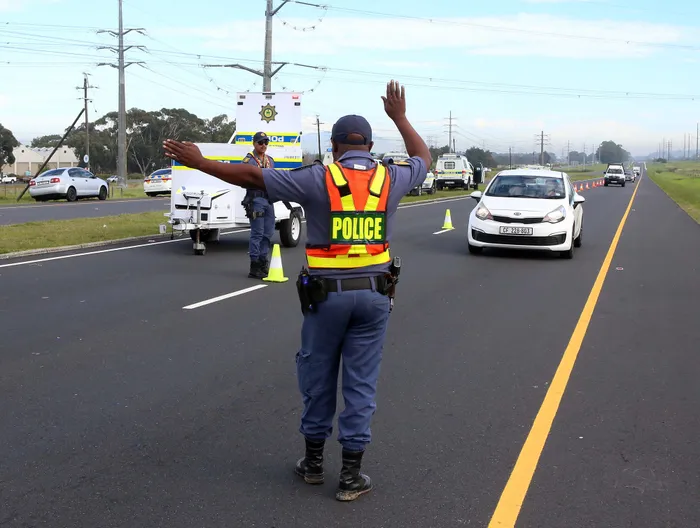Is South Africa actually ready to implement AARTO on December 1?

The AARTO Act is expected to come into effect on December 1, effectively decriminalising many minor traffic infringements.
Image: Brendan Magaar / Independent Media
The Administrative Adjudication of Road Traffic Offences Amendment Act (AARTO) is due to come into effect on December 1, 2025; however, there are doubts as to whether the government is truly ready to implement this new system.
Most sections of the AARTO Act are due to be rolled out in 69 of South Africa’s key municipalities from December, with other smaller regions set to follow in April, while the dreaded demerit points system is expected to be implemented only in September 2026.
Road Traffic Infringement Agency (RTIA) spokesperson Monde Mkalipi told IOL that all systems were in place in terms of software deployment to issuing authorities ahead of the December implementation date.
Furthermore, as of early October, over 80% of officers had been trained. He said that this was a “refresher training” as time had lapsed since the previous training sessions, where 100% of officers were trained.
However, a potential problem area, according to opponents of the system, are the final regulations, which are only expected to be published in late October. These regulations will regulate the processes, infringements and number of points allocated.
Stefanie Fick, executive director at the Organisation Undoing Tax Abuse (OUTA), told IOL that given how late the regulations are being published, there will be insufficient time for adequate public participation and comment.
Rob Handfield-Jones, managing director of Driving.co.za, says notwithstanding the technological problems which have been raised by the municipalities, the RTIA does not seem objectively ready to implement AARTO. He said the current regulations are incompatible with the changes brought about by the Amendment Act, while the draft AARTO regulations, published in 2020, were fraught with problems.
As a result, a raft of legal challenges could stand in the way of the new regulations and their implementation.
“The Department of Transport (DoT) has been so in thrall to the amazing cash cow they've created that they overlooked some basics; for instance, that laws shouldn't have internal references to non-existent clauses,” Handfield-Jones commented.
“That creates the possibility that the Act and Regulations will face a court challenge or challenges on their merits after publication of the Regs. If so, that will further delay things.”
The AARTO system, whose legislation was originally developed in 1998, has already faced numerous delays and court challenges. It was declared unconstitutional by the Pretoria High Court in January 2022. However, this was effectively overturned by the Constitutional Court of South Africa in July 2023.
ALSO READ: Here’s how fast you can drive without being fined and what fines you’ll pay beyond that
MasterDrive CEO said he expects that infringements will be constantly challenged through the new tribunals that are due to be set up, as most members of the public do not yet understand the new system.
“The major concern and quite probably the biggest generator of money, would be the fact that speeding is the one aspect of AARTO that is relatively easy to enforce, given the fact that it can be done by cameras, and so on, even speed averaging. So companies need to be very proactive about how they educate staff and other individuals to ensure that they remain compliant,” Herbert explained.
He said companies would need to manage their fleets more effectively, ensuring that there is a record of who is driving each vehicle at any particular time, as this will determine to whom the demerit points are allocated.
ALSO READ: Here's what companies with vehicle fleets need to do to prepare for AARTO in December
Under the new system, motorists who accumulate a total of 15 points will have their licences suspended for three months for each point exceeding this threshold. These points fall away at a rate of one point for every three months of 'well-behaved' driving, meaning your licence won't remain suspended forever. However, two suspensions will result in a complete cancellation of your licence.
Apart from the demerit points, a central facet of AARTO is that it decriminalises minor traffic offences in order to take strain off the courts.
Rather than sending summonses to those who failed to pay their fines, which often do not even reach the courts, the new system would encourage compliance by blocking the renewal of vehicle and driving licences for those with outstanding fines.
While most offences will be ‘decriminalised’ under AARTO, such as minor speeding infringements and failure to wear a seatbelt, more serious offences will result in criminal procedures. These include driving under the influence, driving with a suspended licence and ‘excessive’ speeding, in which you exceed the limit by more than 40km/h.
IOL Motoring
Get your news on the go. Download the latest IOL App for Android and IOS now
Related Topics: